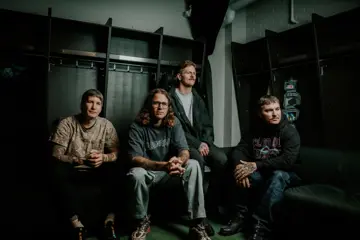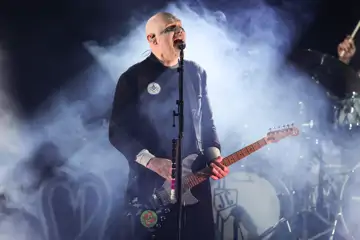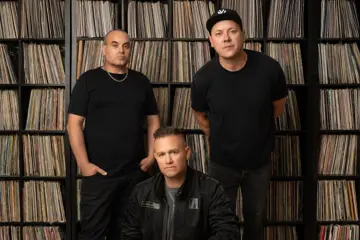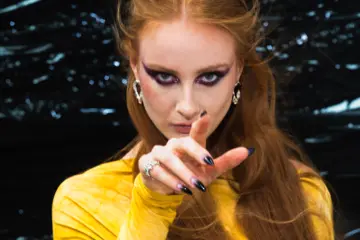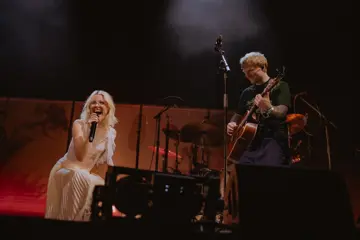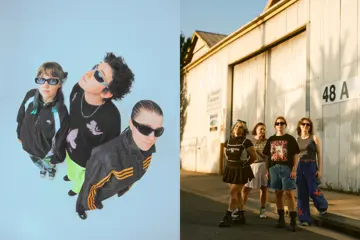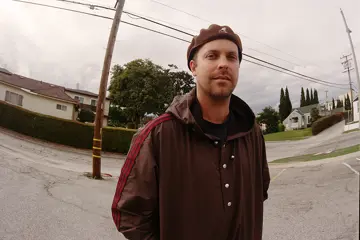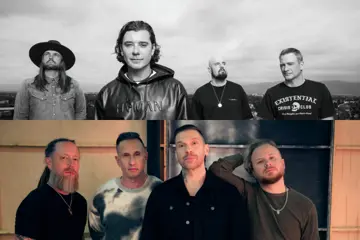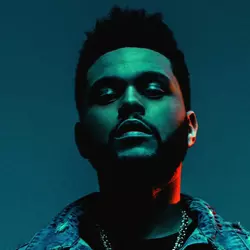 The Weeknd
The WeekndSimon Franglen (composer):
The short answer is yes, but not in the way people think. Creating a track that takes voice prints from The Weeknd and Drake is easily dealt with legally, more importantly there’s no shared experience. Fans want to connect with their artists, a computer mimicking Elvis Presley is still a computer. Few people are going to marvel at something made by pressing a button.
In time people will use AI systems to push musical boundaries, but at the moment writing fresh music has always been about finding something new, AI systems are excellent at building from what’s already around, they are not so good at heading into the unknown.
It will be the less visible areas of music where image is less important; this will be where the biggest changes will be felt. A simple example – background music on reality TV – cooking shows, reality competitions, nature documentaries. These will rapidly get eaten up by AI systems. That work, which currently employs thousands of composers, musicians and studios around the world, it’s an essential part of the music ecosystem. I’ll guess that 80 percent of that type of work will be gone within three years.
Hazel Savage (SoundCloud – VP, Music Intelligence):
It’s important to note that AI isn’t a single technology, but many. I’m most interested in tech and use cases where AI can help artists and the industry. A huge area for this is discovery. Over 120,000 tracks are uploaded to streaming services daily, and nearly a quarter are never played.
Don't miss a beat with our FREE daily newsletter
That’s a problem for artists – but AI can solve for this. Using AI, we can match talented new artists to the most receptive listeners for that style of music. Moving forward, more artists will get a fair chance to be heard.
On the listener side, I also envision a future where users get an increasingly personalised experience. With the help of AI, recommendations could be tailored to be as unique as each listener and give them greater control of their listening experience. This will enable streaming services to serve them with more of what they like, including brand new music, alongside the usual big album releases.
Finally, I see that generative AI, like any other music creation technology – from the piano to sampling – will find its place in the music landscape, and I think we stand to see a lot of exciting art being created. Whether any of that art will be monetisable depends on which deals get struck and future legal precedents. But it’s my sincere belief that regardless of the technology used, AI will continue to help surface the best music being created.
Ash Stahl (Flighthouse):
Is AI going to kill music? It's obviously really difficult to say. Could it? Definitely. Will it any time soon? It's really up to the major labels. We've seen tons of potentially industry disrupting (read: threatening) technologies pop up over the last couple of decades and, for better or worse, the bureaucracy of the majors and music industry at-large slow things down.
We're coming up on almost twenty years of YouTube and the music industry still hasn't perfectly solved the rights management situation there. Anything related to copyright and rights management is innately complex – add AI to the mix and things become even more convoluted. The music industry is bulky and historically slow-moving compared to technology so it will be interesting to see which labels prioritise moving more quickly in the AI space and how copyright conversations play out. In any case, I anticipate it taking a while for any industry-wide changes to take place – so for now, music and artists are likely pretty safe from being killed off by AI.
Want to know more about the intersection between music and AI? Ash Stahl, Hazel Savage and Simon Franglen will be speaking on the ‘Oh Hai, Let's Talk About AI’ panel at BIGSOUND on September 6 in Brisbane. Head here for more information.



